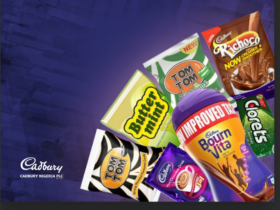
Traders are lamenting an unprecedented surge in commodity prices, attributing it to the volatile nature of the market system.
In Nigeria, there has been an average increase of approximately 28.2 percent in the prices of essential food items over recent months, exacerbating a financial crisis driven by hyperinflation.
A market survey conducted by DAILY POST across the Federal Capital Territory (FCT) and its environs revealed a consistent upward trend in food prices.
The monitored food items encompass yam, rice, beans, vegetable oil, palm oil, tomatoes, pepper, maize, onion, millet, noodles, spaghetti, sugar, wheat flour, meat, garri, wheat, and guinea corn.
Traders in FCT markets and surrounding areas shared their experiences with DAILY POST, highlighting the challenges posed by the prevailing economic conditions in their respective businesses.
Uche Ikechukwu, a skincare consultant at Mararaba market on the outskirts of the FCT, expressed how the current economic climate has severely impacted his business, nearly pushing him to the brink of closure.
“I don’t get customers like I used to. My customers are cutting down on skincare purchases to prioritise other essentials like food and transportation, and that is affecting sales significantly. Restocking has become a daunting task as costs continue to soar,” he said.
Mrs. Nkechi Ubani, a food Trader operating within the same market, expressed her distress over the persistent rise in prices, which poses a threat to her business.
READ ALSO: Air Peace Pegs Economy, Business Class Fares at N1.2 Million, N4 Million for London Route
She said, “I buy foodstuffs from the market wholesale and sell them. But these daily changes in the prices of items are affecting me so much that I find it difficult to buy the items.
“Do you know that three days ago I bought a carton of spaghetti for N13,000, today I was told it was N14,000. Now, when you add to the cost of each one today, by the time you return, the prices will have gone up again.
“So, you will be forced to add more money. A bag of beans is now N120,000, whereas it was N70,000 before. People are going for anything cheap now. Many families are hungry.”
Mrs. Mede Orunmade, a mother of two, expressed how the current circumstances have rendered life intolerable for herself and her family. She likened the situation to being in a state of war, emphasizing the relentless surge in the prices of essential food items.’
The Trader said, “It has been a hard time for me and my family. The country hasn’t been in the right position for the past eight months. I have been struggling with my family to clear up our electricity bills. Coupled with the ever-rising price of foodstuffs, I don’t know if I am going to survive.
“I used to operate an online business but it has packed up. There’s no gain on any business in Nigeria like before anymore. I am just striving to survive.
“A bag of rice five months ago was around N49,000, but it increased to N68,000. As of yesterday, my supplier said it had risen to N70,000. The cheapest thing we used to buy before, garri, is now N2,500 for a paint bucket. It was N800 before.”
Another trader simply identified as Wunmi said, “The government needs to come to our aid now as everything is very hard. A bag of beans is now N65,000, which is three times the price it used to be. Also, groundnut oil is now N8,400 for four litres.
“This is getting too much. We hope the government will come to help us.”
Additional discoveries by DAILY POST indicate that the price of Semovita has surged from N800 to N1,200 per kilogram over the past four months.
Several vendors at Masaka market in Nasarawa State, located on the outskirts of the FCT, shared their challenges with DAILY POST, expressing struggles in procuring goods from wholesalers due to limited financial resources.
A trader, Mrs Agnes Njoku said, “The prices of the foodstuffs are just annoying. I can no longer restock my shop because the amount of money I used to restock it to the full cannot even get a half-restock.
“Tell me, how are we going to cope with this? The worst is that no one knows when all these would end. May God help us.”
A trip to the market in Karu, located in the outskirts of the Federal Capital Territory, revealed a noticeable increase in prices. A 50kg bag of foreign rice was being sold for N72,000, a significant rise from N51,000 just a month prior. Similarly, a full bag of iron beans now fetched N110,000, compared to N89,000 previously.
Meanwhile, at Wuse Market in the bustling center of Abuja, Nura Bala, a provisions Trader, shared that his customers were expressing dissatisfaction with the surge in prices of commodities.
“I have two wives and six children and we all survive on what I make daily.
“Customers are complaining about price hikes and we too are complaining because of the prices we buy from suppliers.
“The gain is not like before and there’s no market like before. Things have gone from bad to worse. All I can say is may Allah help us,” he said.
In the identical market, Muhammad Ali, a beans Trader, observed, “Currently, beans are commanding high prices in the market. The issue doesn’t solely stem from market dynamics but also from the primary farmers. Bean prices began escalating last year and have persistently risen since then.”
Meanwhile, at the AMAC market in Lugbe, Abuja, Baba Aisha, a Trader of meat, lamented the skyrocketing prices of beef.
“Our customers are complaining that meat is costly now. And we, the meat sellers, complain about not seeing cows to buy. If you eventually see, it is very costly. So it is not our fault.
“I sold a kilogram of meat (beef) for N3,000 here last year. Now, a kilogram is N4,000. We are praying for the president that he could see Nigeria’s problem and solve it permanently, especially the way things are moving now,” he said.
A recent market survey carried out at Garki Market in Abuja revealed a notable trend: prices for tomatoes, onions, and yams have surged. Saifullahi Ayagi, a tomato vendor at the market, expressed his concern to DAILY POST, stating, “Despite being in the tomato harvesting season, prices are on the rise rather than decreasing.”
At Nyanya market in Abuja, the price of a mudu of white garri, previously at N400, has surged to between N600 and N700, while yellow garri, once at N600, now commands between N900 and N1000 per mudu.
The cost of a crate of eggs has also risen from N3000 to between N3,800 and N4,000, varying by size.
READ ALSO: Wike Declares Abuja Safe Haven for Foreign Businesses, Despite Series of Kidnapping
Mrs. Margaret, a palm oil Trader, bemoaned the necessity of traveling to Kogi East to procure her stock. However, she expressed dismay over the diminishing profitability of her trade. The arithmetic of expenses versus earnings often leaves customers feeling shortchanged.
Similarly, Mrs. Amaka, a merchant specializing in rice and beans, noted how the steep hike in prices has impacted her business. With sales dwindling, she struggles to generate a decent profit margin, hampering her ability to sustain operations.
“Mudu of rice which was selling for N800 now costs N1,700. This is because a bag of rice which cost N35,000 has now increased to N65,000. With this, we cannot make our own profit.
“This is the reason we are calling on the government to come to our aid by subsidising commodities grown in Nigeria. We are tired of low sales,” she said.
Another Trader expressed frustration over the lack of patronage despite efforts to offer discounts on merchandise, which was disheartening.
“There is nothing to show for our efforts in terms of expected gains or profit,” she said.
Likewise, Mrs. Adah, a vendor of vegetables, implored the Federal Government to tackle the staggering rise in the prices of food items.
She said, ”Prices of pepper, rice, beans among others have all gone up and the hike in price cuts across every item. To worsen the situation, the government is not helping matters.
“We are pleading with the government to assist us. We are only managing to eat. The hike in the price of commodities has almost eroded our profit.”
In another chat, a cloth merchant known as Mr. Daniel expressed his dismay over the declining patronage in recent times, attributing it to hyperinflation. He noted that people are prioritizing necessities like food over clothing, neglecting their attire needs.
“Everything is so difficult that people no longer live to impress but to survive.
“Any little money people get now, they channel it to food instead of buying clothes.
“I do not blame them anyway because it’s when you have eaten to get physical strength that you would think about what to wear.
“We that are selling clothes are the worst hit now because everyone is focused on food.
“Our counterparts selling food items are the ones making it now, but they too have challenges because the price of foodstuff has significantly increased by 100%,” he added. #Trader









Leave a Reply